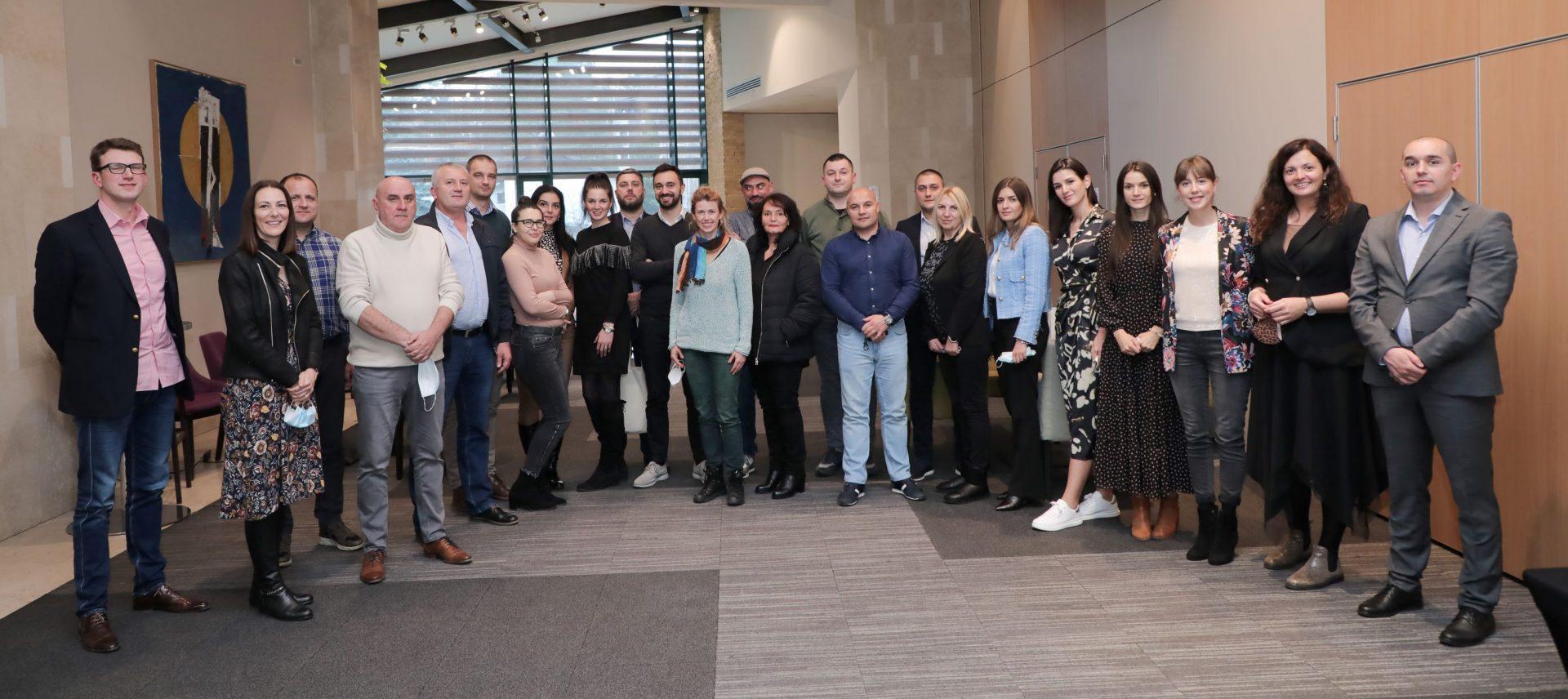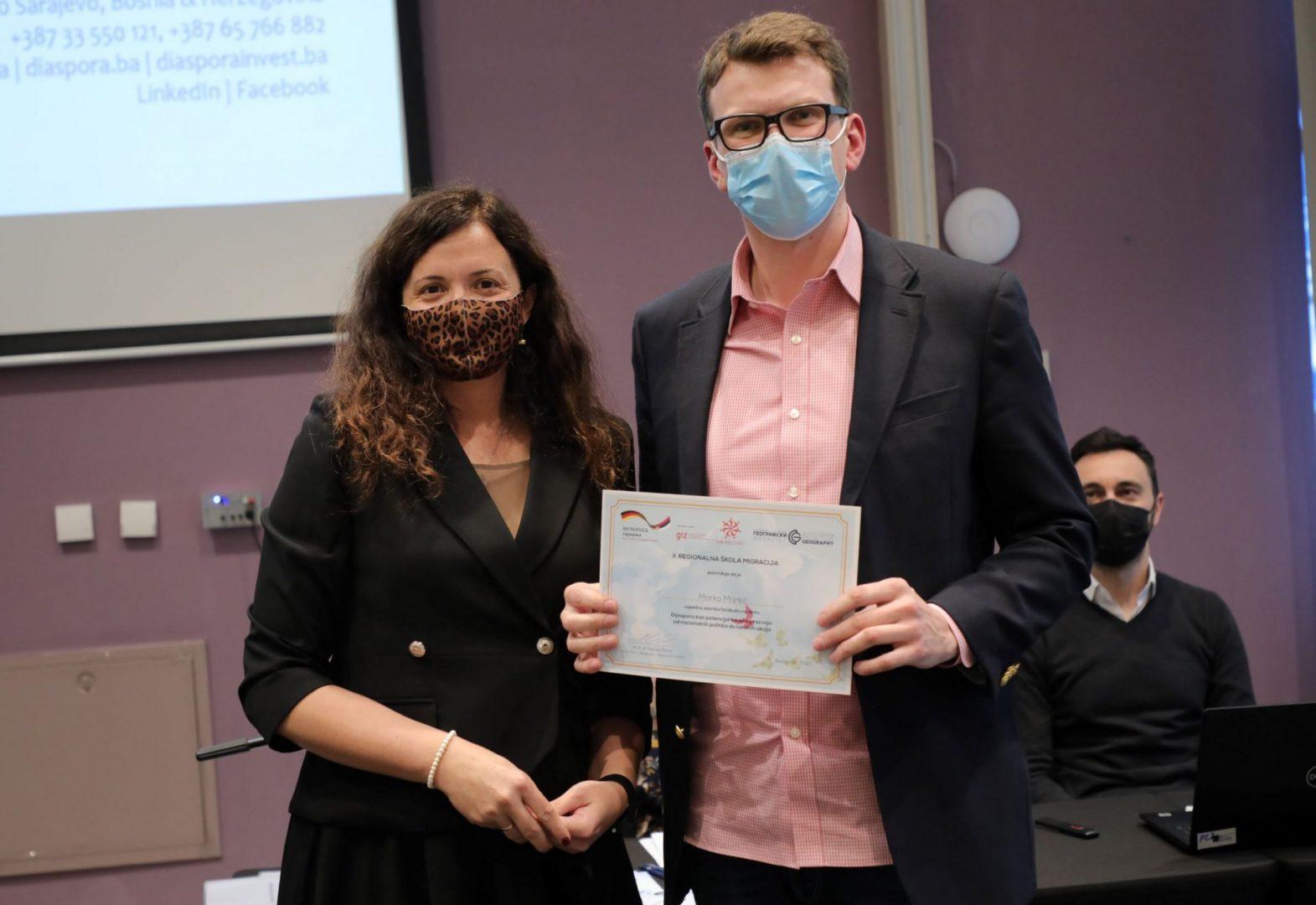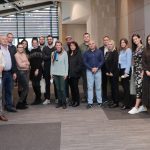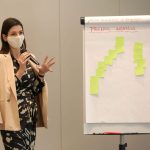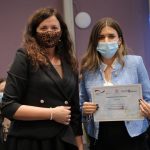“The role of the diaspora in the function of development is an extremely important issue for the state and for each individual local government whose citizens reside and work abroad. Emigration, among other things, affects the demographic potential of local communities, so it is necessary to determine the reasons for leaving the country in order to mitigate emigration, but also the possibility of a more active engagement of the diaspora in the place of origin, as well as conditions for their voluntary return. Challenges in this area are complex and very different, so it is up to each local government unit to design activities that best suit the situation on the ground”, said Dr. Danica Šantić, Associate Professor at the Faculty of Geography, University of Belgrade, at the recently held Second Regional Winter School Diaspora as a potential local development: from national policies to local actions. The school was organized on November 25 by the Faculty of Geography and the Western Balkan Migration Network (WB-MIGNET), with the support of the global program “Migration and Diaspora” (PMD), a German Development Cooperation program, implemented in Serbia by GIZ.
The goal of the school, which brought together representatives of local governments from Serbia, Bosnia and Herzegovina and Montenegro, is to strengthen the capacities of local government employees to understand the importance of the diaspora in development processes and its economic contribution through the transfer of knowledge, skills and technologies.
“Apart from theoretical retrospectives and presenting examples in the world, the school offers the opportunity to get acquainted with examples of good practice from the region, and through interactive activities, participants have the opportunity to acquire applicable knowledge by exchanging experiences,” explained Dr. Danica Šantić.
Within the planned activities during the winter school, special emphasis was placed on the connection between migration and development and raising the importance of the role of migrants themselves in the development processes of the homeland. Models of skills and knowledge transfer and their potential for encouraging sustainable development and including the diaspora in development cooperation programs were also discussed.
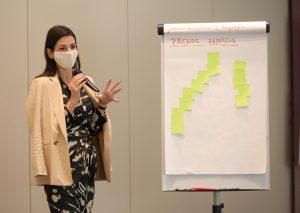 “The main challenges in achieving cooperation with the diaspora are the lack of an adequate database, insufficient human resources that would be engaged in creating forms of cooperation, failure to recognize the needs of the diaspora, but also local self-government units in the function of development. It is clear that the insufficiently defined legal regulations contribute to such a situation, which should be directed towards the possibilities of cooperation, but also the narrowed possibilities for local self-government units to provide benefits to people who want to invest in their place of origin, but also to return. The importance of organizing schools with similar problems is an initial step towards recognizing the various opportunities for cooperation between local governments and members of our diaspora. The goal is to sensitize people within the system so that the acquired knowledge and experience can be applied in local self-governments“, said Jelena Dragić, Head of the Department for Social Activities of the Municipality of Zrenjanin.
“The main challenges in achieving cooperation with the diaspora are the lack of an adequate database, insufficient human resources that would be engaged in creating forms of cooperation, failure to recognize the needs of the diaspora, but also local self-government units in the function of development. It is clear that the insufficiently defined legal regulations contribute to such a situation, which should be directed towards the possibilities of cooperation, but also the narrowed possibilities for local self-government units to provide benefits to people who want to invest in their place of origin, but also to return. The importance of organizing schools with similar problems is an initial step towards recognizing the various opportunities for cooperation between local governments and members of our diaspora. The goal is to sensitize people within the system so that the acquired knowledge and experience can be applied in local self-governments“, said Jelena Dragić, Head of the Department for Social Activities of the Municipality of Zrenjanin.
The guest lecturers were regional experts on migration issues who, on the first day, provided a theoretical basis for understanding the phenomenon of the diaspora in the function of development. After that, in the second part of the school, workshops were organized where participants, through practical examples and interactive activities, exchanged their knowledge, ideas and personal experiences from working in this field.
Dražen Bošković, Deputy Mayor of Trebinje, another participant in the school, stated that the challenge in cooperation with the diaspora in the municipality of Trebinje is to map them, because it is necessary to establish the exact number of people who left in different periods and due to different circumstances. It is a necessary basis for other activities, which include strengthening the capacities of the local self-government unit to cooperate with the diaspora. This also leads to the opening of a special office, service or unit within the municipality or a development agency for cooperation with the diaspora. Another challenge is to establish trust between the homeland and the diaspora, because without that, the whole process is in vain.”
“The municipality of Rožaje recognized the role and importance of the diaspora for the future development of the municipality, and established the Office for the Diaspora, in order to better communicate and cooperate. The municipality is connected with diaspora associations and prominent businesspeople in order to find a common interest and to ensure a two-way cooperation: in terms of investment opportunities, but also in creating opportunities for return. The diaspora is active, extremely attached to the places of its origin and within its possibilities, through various activities, donations, ie philanthropy, it tries to help its community. The municipality traditionally organizes diaspora days and tries to make the stay as pleasant and high quality as possible“, concluded Emir Kuč, head of the office of the President of the Municipality of Rožaje.
The school is just one in a series of activities of the Faculty of Geography and WB-MIGNET and seeks to establish a continuous dialogue between different actors to view migration processes. In addition, the joint engagement is aimed at emphasizing the role of the transnational community in terms of diaspora participation in local community development through poverty reduction, economic development, post-crisis recovery, and creating an environment where diaspora potential can be realized in a sustainable way.


